Publications
Articles, publications, books, tools and multimedia features from the U.S. Institute of Peace provide the latest news, analysis, research findings, practitioner guides and reports, all related to the conflict zones and issues that are at the center of the Institute’s work to prevent and reduce violent conflict.
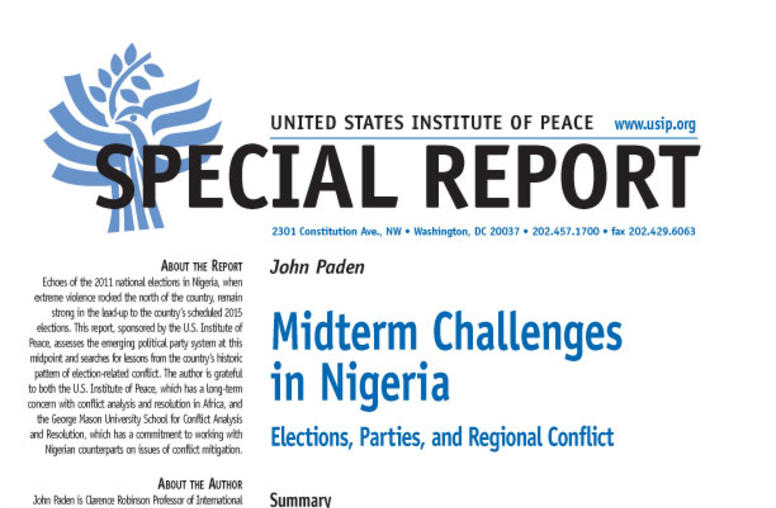
Midterm Challenges in Nigeria
At the midpoint between presidential elections in Nigeria, the country’s leaders need to take stock of the conflict resolution mechanisms in place to deal with the political divide between north and south, Muslim and Christian, and to prevent electoral violence in 2015. Depending on how it contributes to regional balance, power sharing, and perceptions of fair play, the coming phase of party coalition building may well determine future national stability.
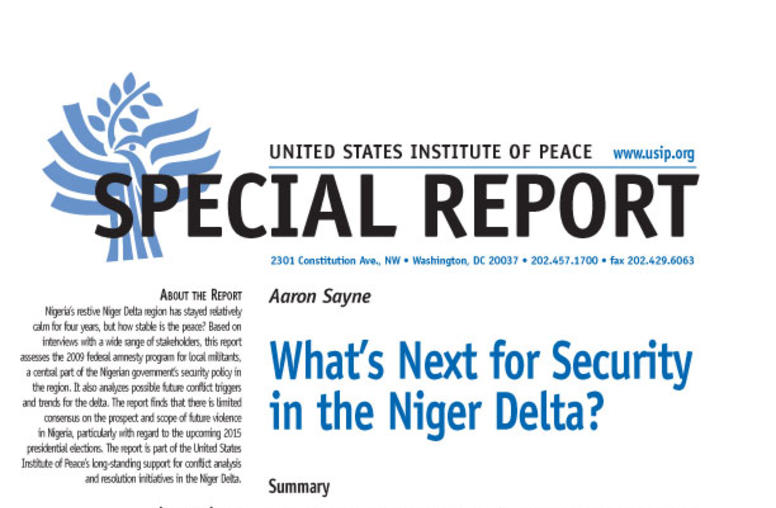
What’s Next for Security in the Niger Delta?
The Nigerian government’s 2009 amnesty of militants in the Niger Delta dramatically reduced the violence that had plagued the region and restored preinsurgency levels of oil production. However, many of the problems that sparked violent confrontations remain unaddressed. This new Special Report draws on the views of many sectors of Nigerian society to gauge whether peace on the delta can be sustained.
Year in Review: Sustainable Economies and Natural Resources
USIP’s Raymond Gilpin, director of the Center for Sustainable Economies, talks about the big projects in 2012 to help Afghanistan, Nigeria, and other countries manage their natural resources – and what the center will focus on in 2013.
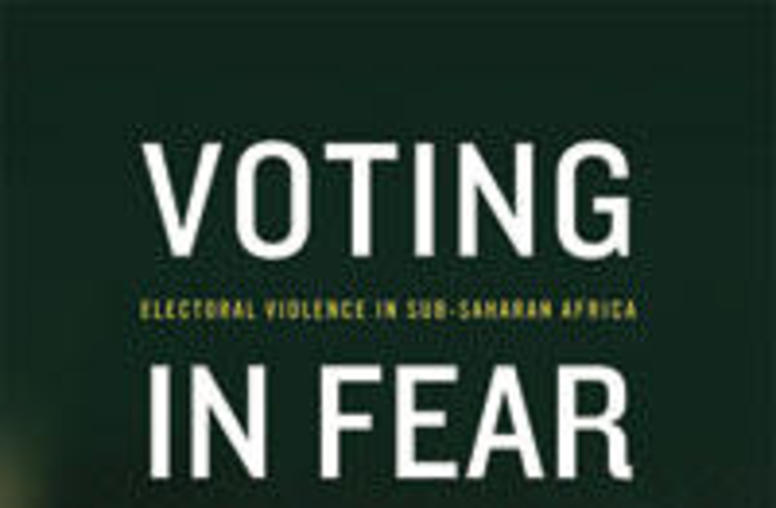
Voting in Fear
In Voting in Fear, nine contributors offer pioneering work on the scope and nature of electoral violence in Africa; investigate the forms electoral violence takes; and analyze the factors that precipitate, reduce, and prevent violence. The book breaks new ground with findings from the only known dataset of electoral violence in sub-Saharan Africa, spanning 1990 to 2008. Specific case studies of electoral violence in countries such as Ghana, Kenya, and Nigeria provide the context to further un...
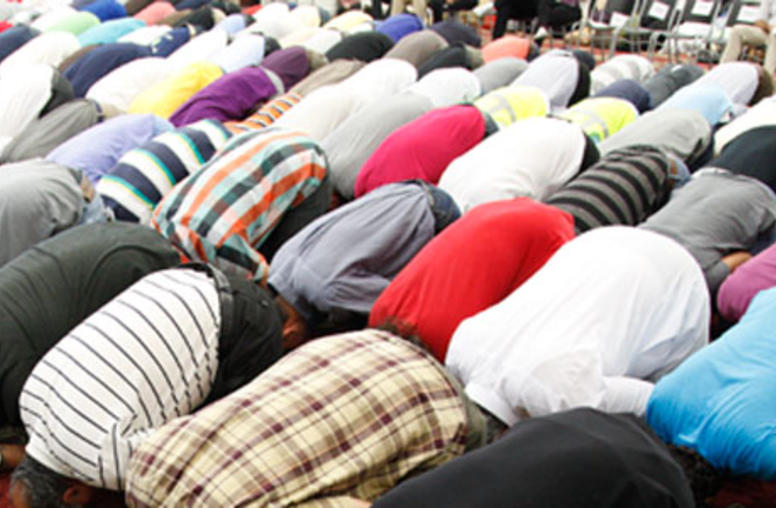
Ambassador Johnson Cook, Specialists Consider Role of Civil Society in Religious Coexistence
The U.S. State Department’s “strategic dialogue” with international civil society, including faith leaders abroad, is underway and “planting seeds for the future” in fostering peaceful religious coexistence, Ambassador Suzan Johnson Cook, the U.S. ambassador-at-large for international religious freedom, said at the U.S. Institute of Peace (USIP) on October 22.
USIP’s Work in Conflict Zones
David Smock, senior vice president for USIP’s Centers of Innovation, outlines some of the more salient points and experiences in the new USIP press publication, “Facilitating Dialogue: USIP’s Work in Conflict Zones.”
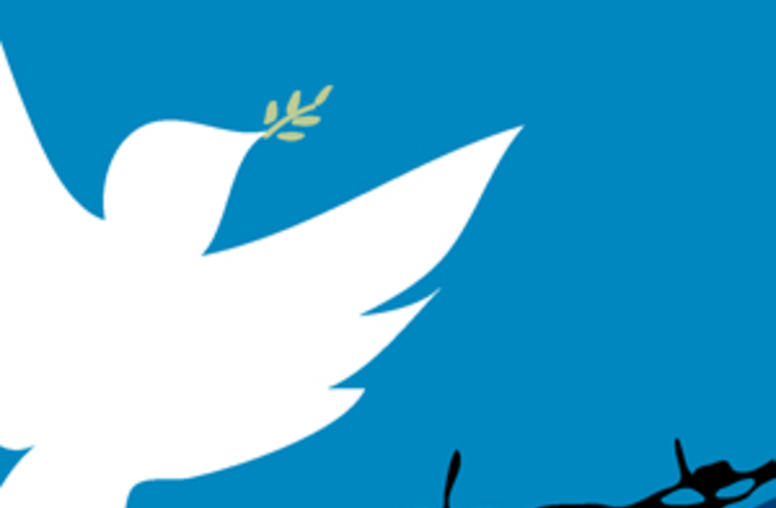
Facilitating Dialogue
Facilitating Dialogue presents seven case studies of the United States Institute of Peace’s facilitated dialogue efforts in Iraq, Kosovo, Israel/Palestine, Colombia, Nigeria, and Nepal. Covering a variety of conflict situations and peacemaking efforts—from the tribal reconciliation in Mahmoudiya, Iraq, to a justice and security dialogue in Nepal—the cases tell stories of peacebuilding successes, efforts in progress, limitations on what can be achieved, and lessons learned.
Promoting Peace in Petroleum-Rich Regions
Raymond Gilpin, USIP's Center for Sustainable Economies director, discusses how a USIP project to analyze the vulnerability of energy infrastructure in fragile, resource-rich countries could inform policy-making and strengthen efforts to secure peace.
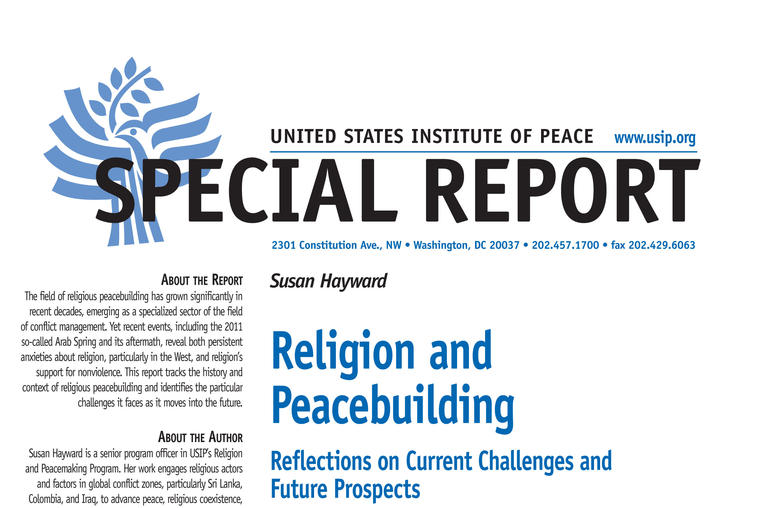
Religion and Peacebuilding
The maturing field of religious peacebuilding faces challenges in integrating with secular peacebuilding efforts, engaging women and youth, and working more effectively with non-Abrahamic religious traditions.
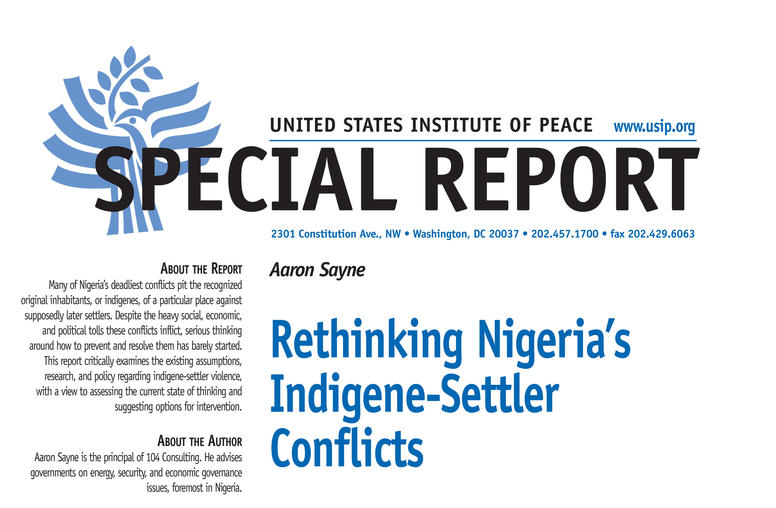
Rethinking Nigeria’s Indigene-Settler Conflicts
A key divide in Nigeria is that between citizens who are deemed indigenous and those who arrived more recently. This new report says the government must do better to hold accountable those who commit indigene-settler violence and to foster greater equality in the land, education, infrastructure, and government jobs available to both groups.